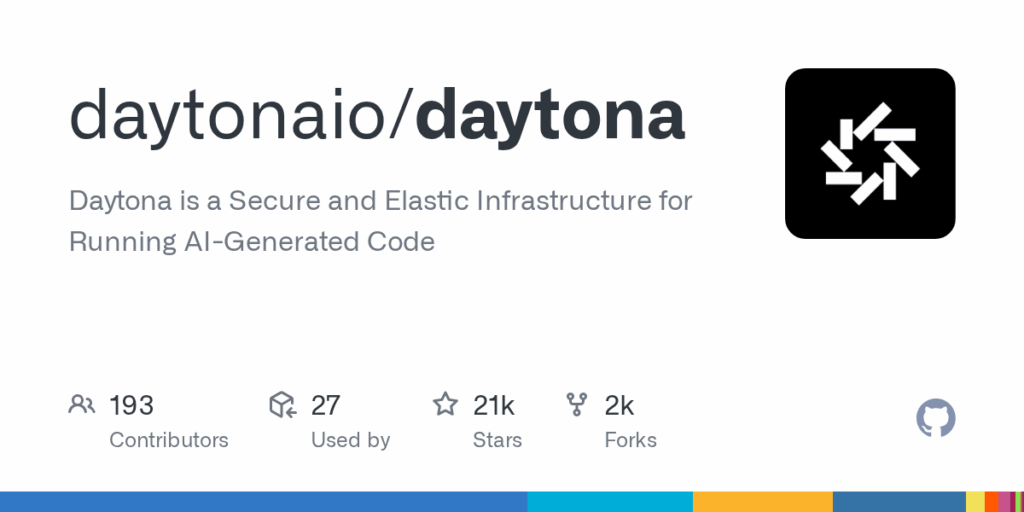daytona
Basic Information
Daytona provides secure, elastic infrastructure and developer tooling for creating, running, and managing AI-generated code in isolated sandboxes. The repository supplies client SDKs for Python and TypeScript, code examples, and APIs to programmatically create sandboxes, run code, and remove environments. It is designed to let developers execute untrusted or generated code with strong isolation using per-sandbox runtimes, persistent environments, and compatibility with OCI/Docker images. The README highlights a quick start flow that requires an account and API key, and demonstrates sandbox lifecycle management and simple code execution calls. The project emphasizes low-latency sandbox creation and programmatic control over files, Git, language server protocol interactions, and execution flows. The repository targets developers and teams who need a managed runtime service to run, test, and integrate AI-produced code into applications and workflows.








